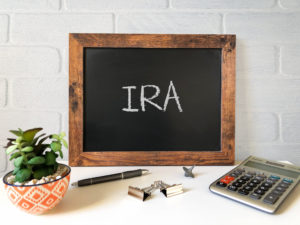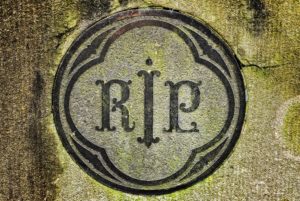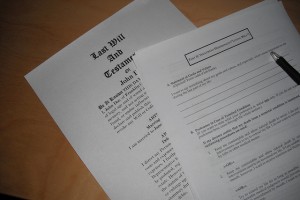 When someone dies, the disposition of their personal items, heirlooms and keepsakes are often the greatest source of contention among their surviving family members. However, during their lifetime many people fail to make arrangements to direct how those personal items should be distributed upon their death. Sometimes they make verbal assurances to certain family members during their lifetime, promising to leave them certain items upon death, but those promises are never put into writing. In order to avoid conflicts over the distribution of such items, and possibly avoid a lifetime of hard feelings between surviving relatives, it’s important to properly address these issues in your estate plan.
When someone dies, the disposition of their personal items, heirlooms and keepsakes are often the greatest source of contention among their surviving family members. However, during their lifetime many people fail to make arrangements to direct how those personal items should be distributed upon their death. Sometimes they make verbal assurances to certain family members during their lifetime, promising to leave them certain items upon death, but those promises are never put into writing. In order to avoid conflicts over the distribution of such items, and possibly avoid a lifetime of hard feelings between surviving relatives, it’s important to properly address these issues in your estate plan.
WHAT IS TANGIBLE PERSONAL PROPERTY?
The term tangible personal property refers to items of a personal nature, including things such as household goods, furniture, furnishings, jewelry, precious stones, photographs, books, silverware, china, crystal, antiques, paintings, sculptures and other works of art, collections, clothing, tools, machinery, equipment, appliances, automobiles, watercraft, recreational vehicles and equipment, pets, and other such personal effects
Tangible personal property does not include assets such as money, real estate, securities, stocks, bank accounts, investment accounts, promissory notes, IOU’s, or similar assets. Continue reading →
 Most of us, to some extent, live in a very digital world. We communicate by email or text. We socialize online, seek our entertainment online, manage our assets and finances online, store our photos, music, and other digital property. . .online. From our health care, to our home security, we are ever increasingly being pulled into the matrix.
Most of us, to some extent, live in a very digital world. We communicate by email or text. We socialize online, seek our entertainment online, manage our assets and finances online, store our photos, music, and other digital property. . .online. From our health care, to our home security, we are ever increasingly being pulled into the matrix.


 On December 20, 2019, President Trump signed into law the “Setting Every Community Up for Retirement Enhancement Act” (the SECURE Act). This new law changes how IRAs and certain other retirement benefits must be treated after death. These changes are significant, and they may affect your existing estate plan.
On December 20, 2019, President Trump signed into law the “Setting Every Community Up for Retirement Enhancement Act” (the SECURE Act). This new law changes how IRAs and certain other retirement benefits must be treated after death. These changes are significant, and they may affect your existing estate plan. When someone dies, the disposition of their personal items, heirlooms and keepsakes are often the greatest source of contention among their surviving family members. However, during their lifetime many people fail to make arrangements to direct how those personal items should be distributed upon their death. Sometimes they make verbal assurances to certain family members during their lifetime, promising to leave them certain items upon death, but those promises are never put into writing. In order to avoid conflicts over the distribution of such items, and possibly avoid a lifetime of hard feelings between surviving relatives, it’s important to properly address these issues in your estate plan.
When someone dies, the disposition of their personal items, heirlooms and keepsakes are often the greatest source of contention among their surviving family members. However, during their lifetime many people fail to make arrangements to direct how those personal items should be distributed upon their death. Sometimes they make verbal assurances to certain family members during their lifetime, promising to leave them certain items upon death, but those promises are never put into writing. In order to avoid conflicts over the distribution of such items, and possibly avoid a lifetime of hard feelings between surviving relatives, it’s important to properly address these issues in your estate plan. Wisconsin has become the 37th state to do away with the so-called “Deadman’s Statute” after a November ruling by the State Supreme Court repealed the 158-year-old law. The intent of the statute was to prevent “interested parties”—anyone with a stake in the outcome of estate litigation—from testifying about conversations they had with a deceased or incompetent person.
Wisconsin has become the 37th state to do away with the so-called “Deadman’s Statute” after a November ruling by the State Supreme Court repealed the 158-year-old law. The intent of the statute was to prevent “interested parties”—anyone with a stake in the outcome of estate litigation—from testifying about conversations they had with a deceased or incompetent person. Almost everyone has a substantial online presence today. This means that we will leave behind some type of Internet legacy as well. Whether you embrace social media sites and use them avidly or simply accept their usefulness, you should definitely consider addressing them in your estate planning documents. Continue reading to discover some of the many reasons why.
Almost everyone has a substantial online presence today. This means that we will leave behind some type of Internet legacy as well. Whether you embrace social media sites and use them avidly or simply accept their usefulness, you should definitely consider addressing them in your estate planning documents. Continue reading to discover some of the many reasons why. Legacies for companion animals have made the news many times in recent years, from the $12 Million that hotel mogul Leona Helmsley tried to leave her Maltese terrier in 2007, to the full range of support that Joan Rivers left her four dogs. While it is not often that you can pull solid life lessons from the tabloids, these stories offer great advice and guidance. They show how common it is becoming for owners to plan for the care of their pets in their
Legacies for companion animals have made the news many times in recent years, from the $12 Million that hotel mogul Leona Helmsley tried to leave her Maltese terrier in 2007, to the full range of support that Joan Rivers left her four dogs. While it is not often that you can pull solid life lessons from the tabloids, these stories offer great advice and guidance. They show how common it is becoming for owners to plan for the care of their pets in their  There is no question about it; lawyers are not cheap. The concern over costs often drives individuals to try handling certain legal tasks on their own. This is especially true in the realm of
There is no question about it; lawyers are not cheap. The concern over costs often drives individuals to try handling certain legal tasks on their own. This is especially true in the realm of